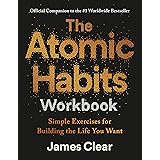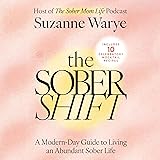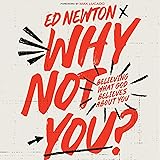Are you truly aware of how you impact those around you, or how your own actions shape your outcomes? In the accompanying video, Dr. Tasha Eurich, an organizational psychologist and author of Insight, illuminates three powerful strategies for cultivating profound self-awareness. Her research, particularly with individuals she terms “unicorns”—those who have made exceptional strides in their personal insight—offers a clear roadmap. Developing a robust sense of self-awareness is not merely a soft skill; it’s a strategic imperative for professionals aiming to excel in leadership, foster stronger team dynamics, and drive tangible business results. This deeper dive expands upon Dr. Eurich’s insights, offering practical applications and a more nuanced understanding of how these strategies can be integrated into your professional life.
Embracing Truth: The “Braver But Wiser” Mindset
The first cornerstone of enhanced self-awareness, as Dr. Eurich highlights, is a foundational mindset: the unwavering decision to embrace the truth, regardless of how uncomfortable it may be. She aptly terms this “braver but wiser.” This isn’t just about acknowledging facts; it’s about actively seeking out information about yourself that might challenge your preconceived notions or ego. Many professionals, often unconsciously, operate within a cognitive bias bubble, where they selectively interpret feedback or situations to reinforce their existing self-image. Breaking free from this requires a profound commitment to objective self-assessment.
Cultivating this mindset involves a conscious effort to quiet the internal critic and the rationalizing voice. It means accepting that growth often emerges from discomfort. When you commit to being braver but wiser, you open yourself to feedback, confront your blind spots, and acknowledge areas for development without letting defensiveness take hold. This internal shift is paramount; without it, external feedback or introspective exercises often fall flat, merely reaffirming what you already believe.
To integrate this, begin by pausing before reacting to critical feedback. Ask yourself, “What if this is true? What might I learn from this perspective?” This simple reframe can unlock significant personal insight, paving the way for transformational improvements in your self-awareness journey.
Unlocking Objective Insight: The Power of External Feedback
Beyond internal commitment, the path to greater self-awareness is significantly accelerated by external perspectives. As Dr. Eurich’s research consistently shows, other people possess a unique vantage point; they can perceive us far more objectively than we can see ourselves. This isn’t surprising, given our inherent cognitive biases and the subjective nature of our internal experiences. Our intentions, for instance, might be clear to us, but our impact on others can be entirely different.
Soliciting meaningful feedback requires a deliberate strategy. It’s not enough to simply ask, “How am I doing?” Instead, cultivate specific, actionable questions designed to unearth concrete observations. Consider a 360-degree feedback approach, gathering input from diverse sources: peers, direct reports, supervisors, and even clients. Each group offers a distinct lens on your behavior and effectiveness.
- For Direct Reports: Ask, “What’s one thing I could do to make our team more effective?” or “When do you feel most supported/unsupported by my leadership style?”
- For Peers: Inquire, “What’s one area where you see me excelling, and one where I could improve in cross-functional collaboration?”
- For Supervisors/Mentors: Seek input on your strategic thinking, professional presence, or areas for career growth.
Crucially, once feedback is received, resist the urge to immediately explain or justify. Practice active listening, ask clarifying questions (e.g., “Can you give me a specific example?”), and express gratitude. The goal is to understand, not to defend. This process not only provides invaluable data for your self-awareness, but also builds trust and psychological safety within your professional relationships, encouraging even more candid input in the future.
Beyond Introspection: The “What, Not Why” Approach to Self-Discovery
Introspection is often touted as the primary tool for self-awareness. Yet, Dr. Eurich’s research reveals a counterintuitive truth: repeatedly asking “why” questions can be remarkably ineffective. Queries like “Why did I react that way?” or “Why do I feel this?” often lead to rumination, rationalization, and a deep dive into past events without yielding new, actionable insights. Our brains are adept at constructing plausible narratives, even if they aren’t entirely accurate or productive for future growth.
The more potent alternative is the “what, not why” approach. Instead of dwelling on the past and searching for causal explanations, focus on present and future-oriented “what” questions. This strategic shift moves you from analysis paralysis to proactive problem-solving and behavioral change. For example, rather than “Why did I miss that deadline again?”, consider asking: “What steps can I take to better manage my time on future projects?” or “What warning signs did I overlook, and what will I do differently next time?”
This technique redirects cognitive energy away from blaming and toward actionable solutions. If an executive snapped at a colleague, the “why” might lead to a fruitless exploration of childhood frustrations. A “what” question, however, shifts the focus: “What triggers led to my outburst, and what can I do in the moment to manage my emotional response more effectively?” This practical orientation fosters accountability and empowers individuals to design new, more constructive behaviors.
The Tangible Impact of Self-Awareness on Leadership and Performance
The transformative power of enhanced self-awareness is perhaps best illustrated through its direct impact on leadership effectiveness and organizational performance. Dr. Eurich recounts the compelling story of “Steve,” an executive whose initial lack of self-awareness manifested as intimidating behavior and poor team morale. His inability to see how his actions impacted his team directly hindered his function’s output and overall business results. This scenario is far from unique in corporate environments, where leaders often possess strong technical skills but lack the critical emotional intelligence derived from self-insight.
Once Steve engaged in the process of seeking feedback and applying the “what, not why” strategy, he began to identify his blind spots. He learned the importance of actively listening, showing empathy, and demonstrating compassion—skills he had previously overlooked. His journey underscores a vital truth: leadership is not just about commanding; it’s about connecting. A leader with high self-awareness understands their strengths and weaknesses, recognizes their emotional triggers, and anticipates how their communication style lands with different team members. This insight allows them to adapt their approach, foster psychological safety, and inspire genuine engagement.
The ripple effect of Steve’s transformation was profound. Improved self-awareness led to better leadership, which in turn boosted team morale, enhanced productivity, and ultimately delivered superior bottom-line business results. This demonstrates that investing in self-awareness is not merely a personal development exercise; it is a strategic investment in organizational health and sustainable success. Leaders who embrace these strategies cultivate environments where trust thrives, innovation flourishes, and teams are empowered to perform at their highest potential.








